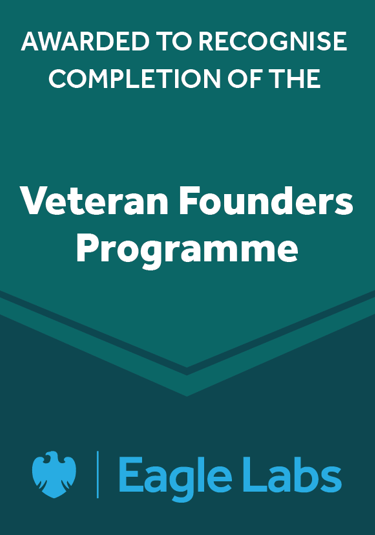
#4: What Coaching Does for Senior Leaders: Confidence, Influence and Strategic Clarity
Jamie Lennon
8 min read
Senior leadership has always carried weight, but the demands placed on today’s senior leaders are unlike anything seen in previous generations. The pace of change has accelerated. Expectations have intensified. Uncertainty has become constant. Decisions must be made faster, with more accuracy, and in environments that shift by the day.
Despite this reality, many senior leaders continue to work in conditions that lack the one thing they need most: a confidential space to think. Senior leaders are expected to continually support others, but rarely receive meaningful support themselves. They are expected to maintain calm despite turbulence, but rarely have a place to process the pressure. They are expected to make decisions with confidence, but often do so without the opportunity to reflect, challenge assumptions or test ideas.
This combination leaves even the most experienced leaders vulnerable to overload, isolation and decline in clarity. Yet these leaders do not need to struggle. Coaching provides the structure, challenge and stability that senior leaders require to remain effective in today’s complex environment.
This article explores what coaching delivers for senior leaders and why it has become an essential component of modern leadership excellence.
The Paradox of Senior Leadership
As leaders advance in their careers, they gain more influence, more authority and more responsibility. Yet simultaneously, they lose access to the candid feedback and psychological safety that supported their earlier growth. This creates a paradox: the people who need the most support often receive the least.
Senior leaders operate under expectations that can be profoundly isolating. They are expected to:
Stay composed regardless of internal pressure
Maintain confidence even when uncertain
Protect the organisation’s stability through their decisions
Support teams through emotional and operational challenges
Remain visible and inspiring, even during difficult periods
Carry the emotional weight of organisational complexity
These expectations create a leadership culture where vulnerability feels dangerous. Senior leaders begin to shield themselves from criticism, conceal uncertainty, and internalise pressure. Over time this erodes confidence, increases stress and narrows perspective.
Coaching breaks this cycle by giving senior leaders a rare gift: a safe, confidential space where they can speak openly without consequence.
The Value of a Confidential Space to Think
Senior leaders are expected to be strategic, but their schedules rarely provide the space needed for strategic thinking. Their days are filled with meetings, decisions, operational pressures and the constant need to respond to others. The result is reactive leadership rather than intentional leadership.
Coaching creates the space that senior leaders cannot create for themselves. It offers a private environment where they can slow down, reflect, question their thinking and explore decisions without judgement. This reflective space strengthens clarity and helps leaders see issues from new angles.
Many senior leaders describe their coaching sessions as the only time in the week when they can think deeply. This clarity is not a luxury. It is essential. Without structured reflection, leaders make decisions based on habit, pressure or emotion rather than insight.
Clarity, once regained, has a powerful cascading effect. Leaders make decisions faster. They communicate more effectively. They reduce emotional reactivity. They regain a sense of control. Their teams notice the difference immediately.
Strategic Clarity: The Senior Leader’s Most Valuable Asset
At senior levels, leadership is no longer about operational tasks. It is about direction, influence and strategic judgement. Leaders must see the bigger picture even when immersed in day to day chaos. They must make decisions that balance risk, resources and long term stability. They must remain calm in complexity and communicate direction with confidence.
Strategic clarity is difficult to maintain when leaders work constantly without time to reflect. Pressure narrows perspective. Stress disrupts rational decision making. Isolation reduces access to challenging viewpoints.
Coaching restores strategic clarity by helping leaders untangle complexity. They learn how to separate noise from priority, emotion from logic and urgency from importance. Through deliberate conversation, senior leaders refine their thinking and approach their responsibilities with renewed confidence.
Clarity is not simply psychological comfort. It is an operational advantage. An organisation led by someone who sees clearly will always outperform an organisation led by someone navigating through fog.
Influence and Presence: The Subtle Power of Leadership
The difference between a competent senior leader and an exceptional one is often invisible. It resides in their presence. Their tone. Their composure. Their ability to influence a room without dominating it. Their capacity to inspire trust, confidence and stability.
Leadership presence is not charisma. It is the result of self-awareness, emotional regulation and intentional behaviour. It is created when leaders:
Understand how their behaviour impacts others
Communicate with clarity and purpose
Regulate their emotions under pressure
Listen with curiosity rather than defensiveness
Project confidence without arrogance
Build credibility through consistent behaviour
Coaching strengthens presence by helping leaders understand the impact they have and the signals they send, often without realising it. Leaders become more aware of how they show up, and more deliberate in how they wish to be perceived.
When a senior leader improves their presence, the effect is immediate. Meetings run more efficiently. Teams feel more confident. Tension reduces. Decisions flow more easily. Influence grows naturally.
Presence is a form of leadership currency. Coaching helps leaders accumulate it.
Confidence: The Most Misunderstood Leadership Attribute
People assume that senior leaders are naturally confident, but confidence at senior levels is often more fragile than it appears. Leaders who carry significant responsibility experience pressure that others cannot see. They deal with uncertainty, political dynamics, competing priorities and scrutiny that often creates internal doubt.
Confidence in senior leadership is not about feeling certain. It is about maintaining composure and clarity even when certainty is impossible.
Coaching strengthens confidence by helping leaders understand the foundations of their self-belief. It explores how they make sense of challenges, how they respond to pressure and how they interpret their own performance. Through this process, leaders develop healthier internal narratives and more resilient patterns of thought.
Confident leaders do not ignore doubt. They understand it. They use it productively. They make decisions with balanced judgement. They lead from a place of grounded authority.
The quality of a leader’s confidence affects the confidence of the entire organisation. Coaching ensures that confidence is not assumed but developed.
Decision Making at Senior Level: Why Clarity Matters More Than Certainty
Senior leaders are constantly required to make decisions with incomplete information. They must act quickly, manage risk, and navigate ambiguity with composure. Poor decision making at this level can create significant operational, financial or reputational consequences.
Decision making becomes compromised when leaders are overwhelmed, reactive, emotionally fatigued or isolated. Without support, even experienced leaders can fall into counterproductive habits, including:
Hesitation and overthinking
Rushed decisions under pressure
Avoidance of difficult choices
Emotional reactivity
Reliance on narrow perspectives
Overconfidence that ignores risk
Under confidence that prevents action
Coaching strengthens decision making by providing a structured environment for leaders to explore their logic, challenge their assumptions and evaluate their reasoning. Leaders begin to see patterns in their decisions, both good and bad. They develop a disciplined approach to judgement that carries into their daily leadership.
Better decisions save time, reduce stress and improve organisational outcomes. Senior leaders cannot afford to make decisions blindly. Coaching ensures they do not have to.
Emotional Regulation and Leadership Resilience
Senior leaders must maintain composure even when under significant emotional strain. They absorb pressure from all directions. Teams want clarity. Executives want results. Stakeholders want reassurance. Staff want support. The leader stands in the centre of competing expectations.
Without emotional regulation, leaders become reactive. They communicate poorly. They appear inconsistent. They withdraw or become overly controlling. These behaviours undermine trust and create instability.
Coaching helps leaders understand their emotional triggers, develop healthier responses and build resilience in high pressure environments. This is particularly important for leaders in clinical and operational roles where the emotional load is substantial.
Resilient leaders create resilient teams. Their calm presence stabilises the working environment and reduces anxiety across the organisation. This leads to improved performance, better communication and stronger culture.
Resilience is not developed by working harder. It is developed by working more consciously. Coaching is the vehicle for that conscious development.
The Isolation of Senior Leadership and Why It Matters
Leadership isolation is one of the most dangerous and least acknowledged risks in organisations. As leaders ascend, they naturally receive less honest feedback. People become more cautious. Staff filter their concerns. Colleagues soften their criticisms. Executives speak in strategic language rather than direct truth.
This creates blind spots that grow over time. Leaders begin to lose visibility of how they are perceived, how decisions are received and how culture is evolving. They may believe everything is stable while underlying issues quietly grow.
Coaching provides senior leaders with the one thing they cannot get internally: honest, objective feedback. This feedback is not destructive. It is developmental, delivered with respect and designed to elevate performance.
Through coaching, leaders learn where their blind spots lie, how they are affecting their teams and what they can do differently. This insight is invaluable. It prevents problems before they emerge and protects leaders from avoidable mistakes.
Isolation is solved not by stepping back but by inviting challenge. Coaching provides that challenge safely and constructively.
Leading Through Complexity: Why Senior Leaders Need a Thinking Partner
Modern leadership is not linear. It is dynamic, often ambiguous and heavily influenced by human behaviour. Senior leaders cannot rely solely on experience because the challenges they face evolve constantly. They need a thinking partner who can help them explore complex situations with clarity.
A coach acts as that partner. Not a consultant who offers solutions. Not a mentor who shares personal experiences. A coach supports leaders to think more clearly about their own reasoning, decisions and behaviour.
The value of a thinking partner cannot be overstated. Leaders can:
Test ideas before implementing them
Explore concerns without judgement
Understand the emotional dynamics influencing decisions
Evaluate risks with clarity
Gain perspective on political complexities
Recognise patterns they may be too close to see
Strengthen their strategic approach
A senior leader who thinks clearly performs better, influences more effectively and creates stability where others create confusion. Coaching provides the environment in which clear thinking becomes possible.
A Perspective from Leading Elite High-Performing Teams
Our coaching approach is grounded in years of senior military and clinical leadership where clarity, communication and calm decision making were essential. In clinical environments, uncertainty is constant, risk is high and the consequences of leadership behaviour can be profound. This experience has shaped the way we coach senior leaders.
We understand the emotional load of leadership, the pressure of responsibility and the need for absolute clarity during complex situations. we coach leaders with the same principles we relied on both on the battlefield and in clinical practice: precision, composure, accountability and trust.
Senior leaders value our approach because it is practical, grounded and informed by lived experience. We know what high pressure leadership looks and feels like, and we know how to help leaders rise to that challenge with confidence.
The Transformation Senior Leaders Experience Through Coaching
Senior leaders often enter coaching with specific goals such as improving strategic clarity, managing pressure or strengthening communication. What they often discover is that coaching delivers far more than they expected.
They become calmer.
They think more clearly.
They communicate with greater authority.
They handle conflict more confidently.
They develop stronger teams.
They influence without forcing.
They regain control of their workload.
They rediscover confidence in their judgement.
They feel less isolated and more supported.
They lead intentionally rather than reactively.
These transformations are not cosmetic. They change how organisations function. Teams become more stable. Communication improves. Staff feel more supported. Decision making flows more easily. Culture strengthens.
Senior leaders who engage in coaching elevate not just themselves but the entire organisation around them.
Senior Leaders Deserve Support Too
It is often assumed that senior leaders should simply cope. That they should be endlessly resilient. That they should know what to do at all times. This assumption is unrealistic and harmful.
Senior leaders deserve support. They deserve a safe space to think, reflect and grow. They deserve development that matches the level of responsibility they carry. They deserve a relationship that helps them navigate complexity with confidence.
Coaching is not a sign of weakness. It is a sign of wisdom. The strongest leaders are those who invest in themselves.
When you are ready to explore what this could look like for your organisation, we are here to talk.




READY TO TALK?
If you're ready to discuss your training compliance or business consultancy needs, or you simply want to understand our services more, click the button below to schedule a FREE 30 minute call, and allow us to answer all your questions and provide insights into the best course of action for your business.
© 2025 1664 Training Solutions Ltd. | Privacy Policy
Website designed by Mpowering Solutions


1664 TRAINING SOLUTIONS LTD.
Our Services:


